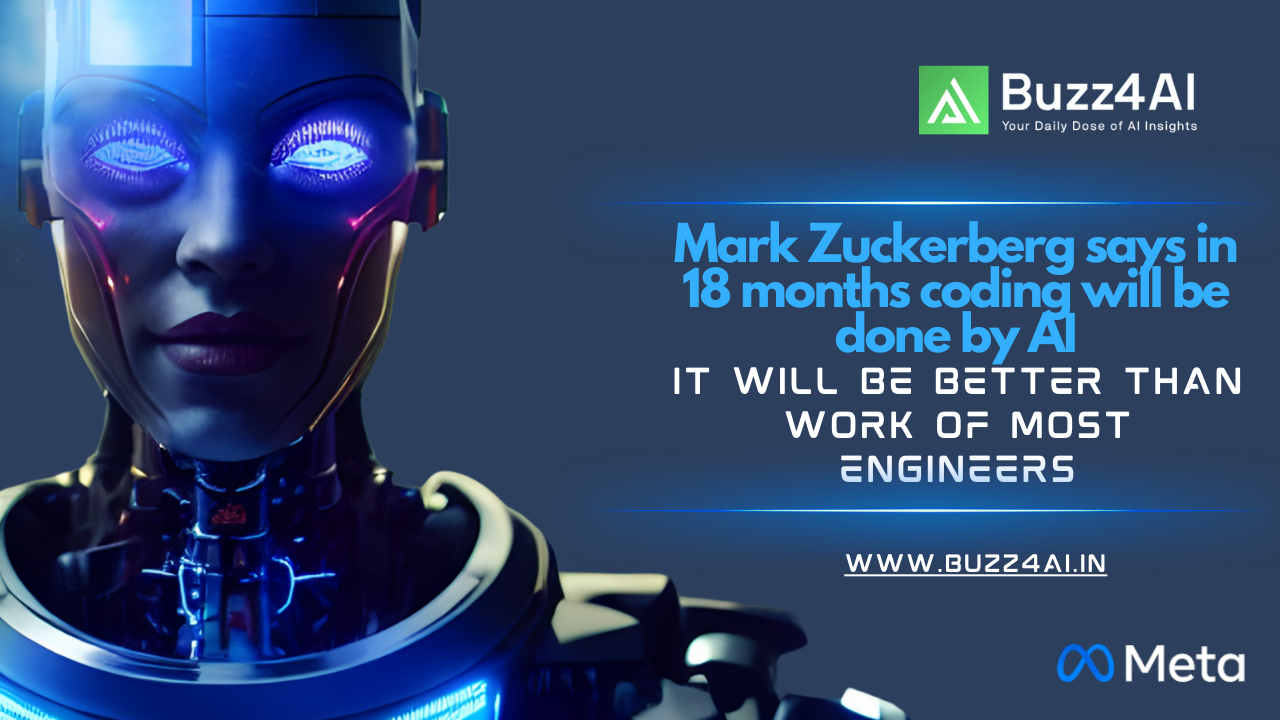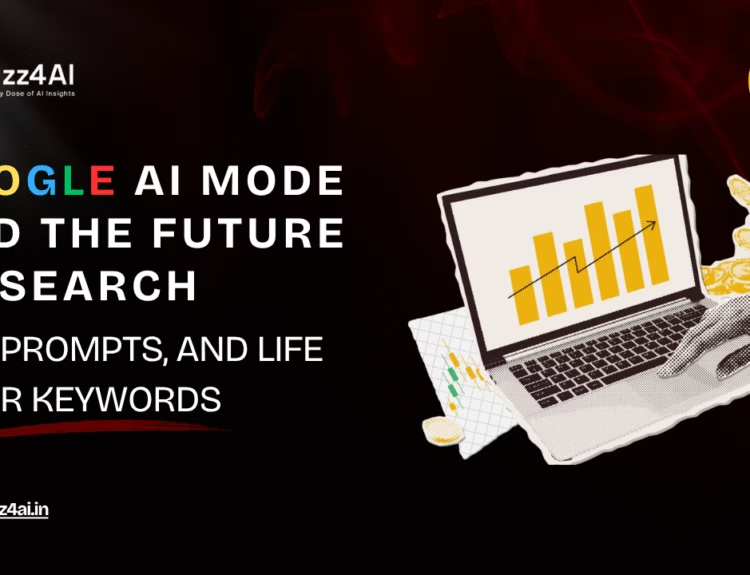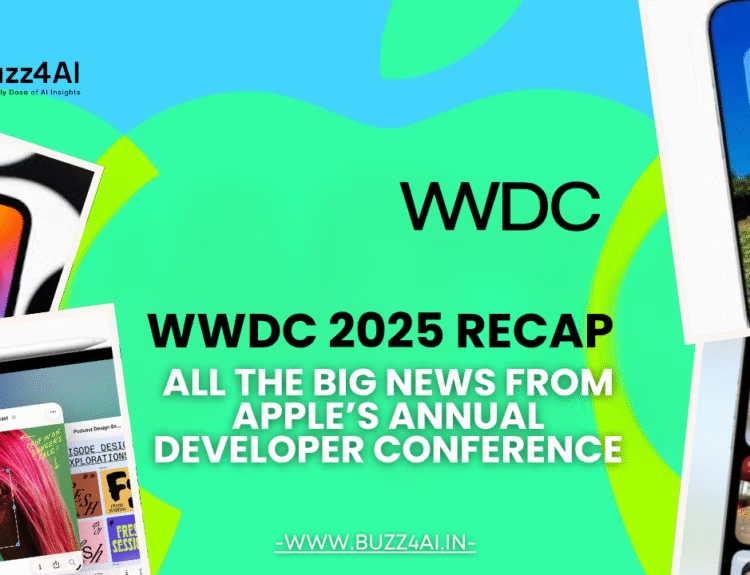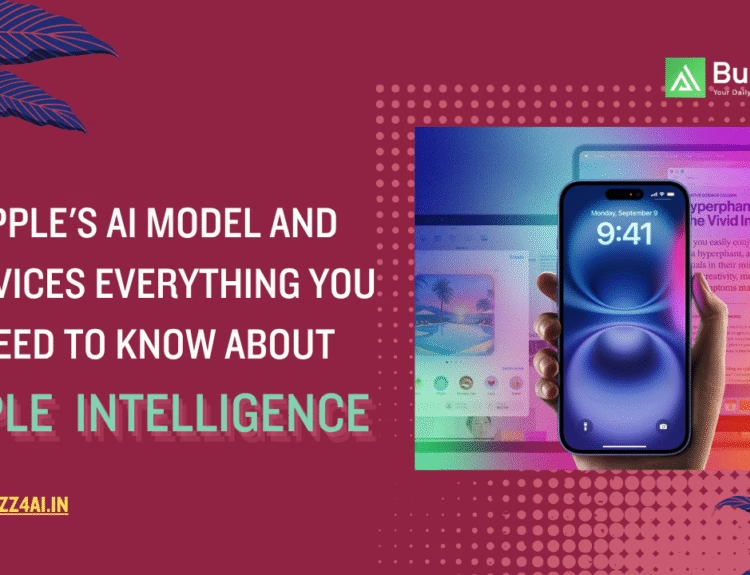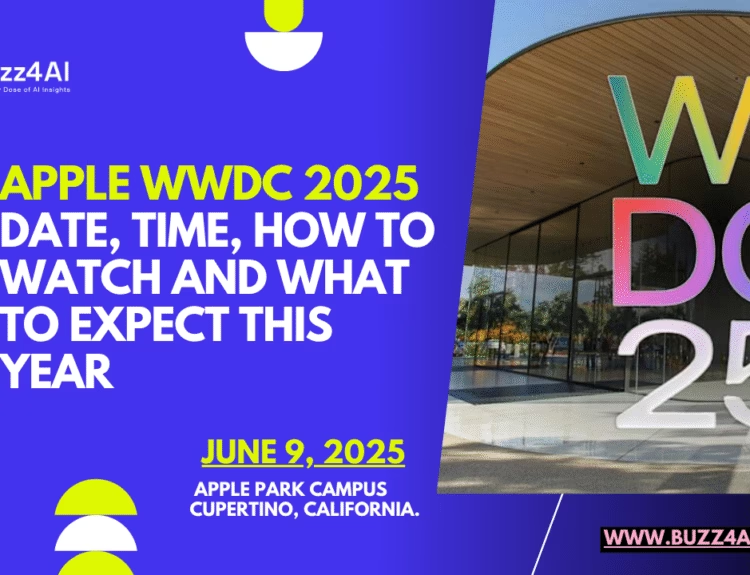Mark Zuckerberg predicts AI will write most of Meta’s Llama project code within 12-18 months, surpassing the capabilities of average skilled coders. Meta is developing AI coding and research agents specifically to advance Llama research, integrating them fully into their toolchain. Zuckerberg envisions a future where AI engineers replace human engineers in coding Meta’s apps and AI.
In a podcast interview with Dwarkesh Patel, Meta CEO Mark Zuckerberg said that in the next 12 to 18 months, most of the code for Meta will be written by AI.
AI to Outperform Top Coders: A Reality Soon
Zuckerberg is not alone in this view, major tech giant companies are already embracing AI that outperforms top coders in many respects. At LlamaCon, Microsoft CEO Satya Nadella revealed that 30% of Microsoft’s codebase is now generated by AI tools, such as GitHub Copilot and Codex. Similarly, Google CEO Sundar Pichai has said that 25% of Google’s code is written by AI, a figure expected to grow steadily.
Adding to this, OpenAI CEO Sam Altman stated that in some companies, AI systems now write 50% or more of the code. These numbers aren’t just impressive—they signal a complete redefinition of what it means to be a software engineer in the AI era.
Meta Builds In-House Coding Agents
The Meta CEO also outlined the company’s efforts to develop internal AI agents specifically aimed at enhancing its Llama large language models. “We are working on a number of coding agents inside Meta,” Zuckerberg said. “We’re not trying to build a general developer tool. We’re trying to build a coding agent and an AI research agent that basically advances Llama research specifically. It is fully plugged into our tool chain.” He added that Meta is not pursuing enterprise software commercialisation in this space, but is focused on internal productivity and AI research acceleration.
Zuckerberg previously expressed a similar outlook earlier this year, stating that “we will get to a point where all the code in our apps and the AI it generates will also be written by AI engineers instead of people engineers.” Meta’s Llama models are part of its broader AI strategy to compete with leading players in the field. With AI set to become a key developer inside the company, human engineers may increasingly shift toward oversight, design, and long-term innovation.
AI to Handle Full Coding Tasks
The Ability of AI to handle Full coding tasks is not just theoretical anymore. AI models like GitHub Copilot, OpenAI Codex, and Meta’s LLaMA derivatives are already being integrated into developer toolchains. These systems can generate front-end components, back-end logic, unit tests, and even documentation—all with minimal human intervention.
Zuckerberg’s vision is aligned with this real-world progress. The goal is not merely code suggestion or support, but end-to-end software generation. This could dramatically impact how companies build apps, platforms, and services, especially as AI continues to outperform top coders in speed, accuracy, and scalability.
Industry-Wide Trend Towards AI-Driven Code
From Cloud computing to Mobile App development, companies across all the sectors are now actively deploying AI to automate software creation. What was once considered experimental is fast becoming essential. The industry-wide trend towards AI-driven code is driven by :
-
Efficiency gains in development cycles.
-
Reduced need for boilerplate and repetitive coding.
-
Increased code reliability through machine learning optimizations.
-
Democratized access to development for non-technical users.
This transformation is not just technological—it’s strategic. Businesses that embrace AI in development workflows can innovate faster, reduce costs, and outpace competitors.
Implications for Engineers
While the rise of AI in coding presents exciting opportunities, it also challenges the traditional role of software engineers. If AI can outperform top coders, what remains for human developers?
The future likely holds a hybrid model where both humans and AI Agents works together.This includes :
-
Prompt engineering to instruct AI systems effectively.
-
Reviewing and validating AI-generated code.
-
High-level system architecture design.
-
Interdisciplinary collaboration with product and AI teams.
It suggests a world where productivity soars but also demands that engineers continuously evolve their skill sets.
Final Thoughts : A New Era of AI Coding Is Here
Mark Zuckerberg’s projection may have sounded futuristic a few years ago—but not anymore. With AI already generating a significant percentage of code at Meta, Microsoft, Google, and other firms, it’s clear that the AI revolution in software development is not only underway—it’s accelerating.
As Meta builds In-house coding agents, and the industry-wide trend towards AI-driven code witnessing a new era.
For developers, businesses, and the tech industry at large, now is the time to adapt—or be left behind.
For more posts visit buzz4ai.in
